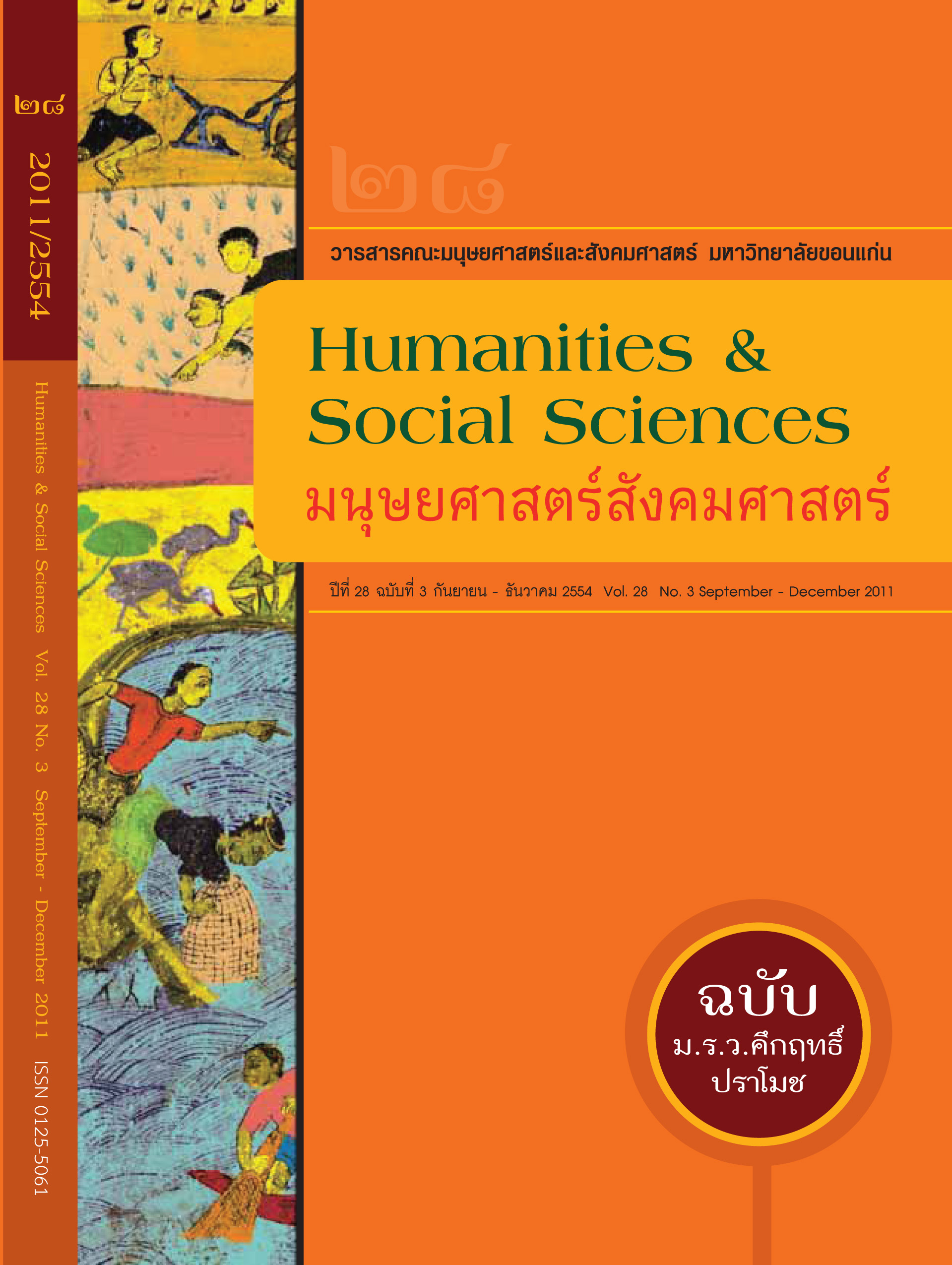การสร้างตนและการสั่งสมทุนทางวัฒนธรรมของคนไทยเชื้อสายจีน
Keywords:
ทุนวัฒนธรรม, ชาวไทยเชื้อสายจีน, สี่แผ่นดิน, Cultural Capital, Chinese-Thai, Si Phaendin (Four Reigns)Abstract
บทคัดย่อ
บทความนี้เป็นส่วนหนึ่งของงานวิจัยเรื่อง ความสัมพันธ์จีน-ไทยในนวนิยายเอก เรื่อง สี่แผ่นดิน มีจุดมุ่งหมายเพื่อนำเสนอสถานะความรู้บางส่วนเกี่ยวกับการสร้างตนของคนไทยเชื้อสายจีนและพิจารณาตัวอย่างการสั่งสมทุนทางสังคมวัฒนธรรมของคนไทยเชื้อสายจีนในทรรศนะ ของ ม.ร.ว.คึกฤทธิ์ ปราโมช ผ่านนวนิยายเอกเรื่องสี่แผ่นดิน ซึ่งจากการวิเคราะห์ตัวบทนวนิยายเอกเรื่องสี่แผ่นดินพบว่า คนไทยเชื้อสายจีนได้สร้างฐานะทางเศรษฐกิจและสังคมอย่างมั่นคง และบริบทของการเปลี่ยนแปลงสังคมวัฒนธรรมไทยไปสู่ความทันสมัย กลุ่มทุนไทยเชื้อสายจีนคือกลุ่มคนผู้มีบทบาทสำคัญในการนำคนไทยเข้าสู่ระบบตลาด รวมทั้งกลายเป็นผู้มีบทบาทในการครอบครองและจัดการทุนทางวัฒนธรรมของไทยในเวลาต่อมา
คำสำคัญ : ทุนวัฒนธรรม, ชาวไทยเชื้อสายจีน, สี่แผ่นดิน
Abstract
This article is a partial study of the research on the relationship of China and Thailand demonstrated through Kukrit Pramoj’s Si Phaendin (Four Reigns). The article aims to demonstrate the construction of wealth and also some examples of cultural capital accumulation of the Chinese-Thai characters in the novel. The study shows that the Chinese-Thai characters are portrayed as the group of people who accumulated their wealth in order to upgrade and secure their place in the Thai society. They also played the major role in assisting social shifting from the old Thai culture to the modern Thai culture. The group of Chinese-Thai investors also brought the Thai society to marketing system; they, therefore, were the key persons who owned most of cultural assets and managed social and cultural capitals in Thailand.
Keywords : Cultural Capital, Chinese-Thai, Si Phaendin (Four Reigns)



